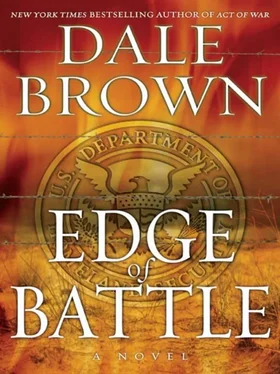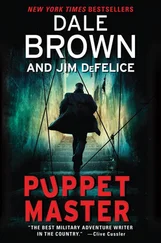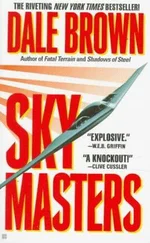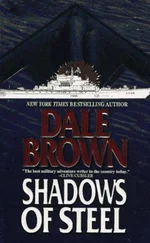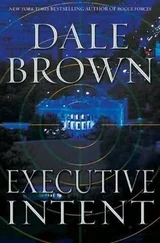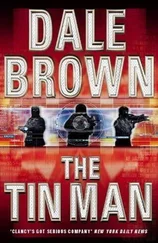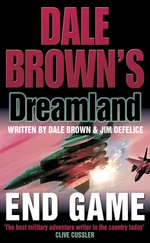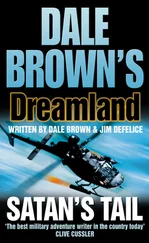“Did you say, a pill? ”
“…releases thousands of tiny nanotransceivers in the body that transmit a coded signal when interrogated. The coded signal can be matched with official identification documents to—”
“Are you suggesting that our people swallow a radio beacon that reports their location to authorities twenty-four hours a day?” Díaz asked incredulously. “This is the most insane and intrusive idea that I have ever heard!”
“It sounds radical, I know,” the President said, “but the devices are completely harmless—”
“You are crazy, Mr. Conrad! I could never recommend that the citizens of my country ever participate in such an outlandish—!”
“Minister Díaz, I am proposing that each Mexican citizen who wishes to return to the United States may be allowed to simply walk back into this country and return to his or her job and home simply by providing a Mexican identity card and swallowing a NIS pill—”
“‘Nice?’ That is what you call this…this Big Brother eavesdropping monstrosity?”
“The presence of the identification code proves that the individual has chosen to obey the law and respect our borders and security obligations,” the President said. “The NIS system will reduce the time it will take to identify individuals eligible for guest worker status: anyone with the code can stay and participate in a guest worker program; anyone not having such a code will be detained. It is a fair, unobtrusive, and easy solution…”
“This is no solution at all—it is a gross marginalization of a human being’s basic right to freedom and privacy!” Felix Díaz retorted. “Do you actually expect that this so-called ‘Nice’ program will replace serious and equitable negotiations between our nations for a resolution to this crisis, or do you expect to just dictate that this otherworldly, Draconian abomination be implemented?” He did not give President Conrad a chance to respond. “You may call me when you have a serious solution to discuss, sir. Good day to you.” And the connection was terminated with a loud Crraack !
The President returned the handset to its cradle and sat back in his chair, looking out the window. “Well, the NIS idea went over like a lead balloon,” he said morosely. “But as I was explaining it to Díaz, it started to sound better and better to me .”
“It will never fly, sir,” Chief of Staff Thomas Kinsly said. “It’s a crazy idea anyway—I would be surprised if anyone in Mexico was even the least bit interested in the idea. But what about Díaz, sir? Did it sound like he’s in charge now?”
“Absolutely,” the President said. “Felix Díaz definitely sounds like he’s taken over—he hardly mentioned Maravilloso and anyone else in the government, as if they never even existed. Jeez, I thought Maravilloso was a bomb thrower—Díaz has got her beat ten ways to Sunday.” He turned to Kinsly and asked, “What do we know about Díaz, Tom?”
“Felix Díaz is a major player—very wealthy, very popular, very politically connected, hawkish, an obvious front-runner for president in their next elections,” Kinsly said. “The rumors are that he and Maravilloso have been carrying on with each other for a few months—right in the presidential palace too, I hear.
“The Internal Affairs Ministry is one of the most important and far-reaching in the Mexican government, and Felix Díaz is a hands-on, knowledgeable administrator,” Kinsly went on. “He controls the intelligence apparatus, the border patrols, the antidrug bureaus, the federal police, and all domestic investigations—almost everything except foreign affairs, the courts, and the military, and he probably has a big hand in those as well. The Ministry of Internal Affairs is almost as well-equipped as the military, especially along the border.”
“I need information on the situation out there,” the President demanded. “I need to find out if Díaz has staged a coup and what we’re up against.”
“We don’t have a functioning embassy in Mexico City that can help us go find out information for us, sir,” National Security Adviser Ray Jefferson said, “so we’re going to have to rely on technical and human intelligence to get information, which will take time. But if these attacks by Mexican émigrés are being supported or even organized by Felix Díaz, and he’s now in charge of the government, we could be looking at a long, protracted, and deadly ongoing insurgency against the United States—perhaps even a guerrilla war.”
The President’s head shot up as if a gun had been fired in the Oval Office, but the Chief of Staff was the first to retort: “Sergeant Major, as usual, you’re overreacting to recent developments. What could his motive possibly be?”
“Exactly what’s happening, Mr. Kinsly: chaos, pandemonium, hatred, distrust, confusion, fear, and violence,” Jefferson said. “An insurgency forces the issue of immigration reform—more accurately, immigration liberalization —onto the front burner.”
“How? What’s he hoping to gain?”
“Do you think, Mr. Kinsly, that Congress is likely to enact any legislation that will curb immigration now, with thousands of Mexican workers leaving the country every day?” Jefferson asked. “Folks won’t focus on the violence—in fact, I would think more folks would likely blame the U.S. government for causing the violence with our ‘radical’ border security measures. Proimmigration reform measures will be seen as the way to stop the violence and get everyone’s lives back to normal. The more restrictive or onerous the rules and requirements for establishing the right to work, deportation, pay, benefits, and citizenship, the more the people and Congress will oppose it. All attempts at meaningful border security and illegal immigration control will be pushed aside.”
“That’s crazy,” Kinsly said. “You can’t possibly believe that Mexico is purposely encouraging people to attack the United States in order to force a resolution to the illegal immigration situation?”
“No, Mr. Kinsly—I’m suggesting that forces within the Mexican government, possibly aided by the Consortium and also by radical leaders like Ernesto Fuerza, are staging violent attacks against the United States in order to incite their people to react against the United States, whether by violence or simply by leaving their jobs and heading south,” Jefferson responded. “There could be other reasons as well—political, financial, criminal, even public relations—but by doing what they’re doing, they are forcing the United States to expend a lot of political, financial, and military resources on this issue. I don’t know if the Mexican government is assisting the insurgents, but they don’t have to—all they need do is play along. Whatever they’re doing, Mr. Kinsly, it’s working .”
“I’m still not buying it, Sergeant Major,” Kinsly said. At that moment the phone rang. Kinsly picked it up, listened…and groaned audibly. “A suspected terrorist attack at a university north of Los Angeles,” he said after he replaced the receiver. “Possibly a truck bomb outside an engineering building. L.A. County sheriffs and California Highway Patrol bomb squads are on it.” The President said nothing, the National Security Adviser noticed, as if suspected terrorist truck bombs were as common as traffic accidents nowadays. But that’s what the world had come to, he thought ruefully: if it wasn’t bigger than Nine-Eleven, the Consortium attacks on Houston, or the floods in New Orleans, it hardly registered on the White House’s radarscope anymore.
At that moment Ray Jefferson’s wireless PDA beeped. Knowing that only an extremely urgent message would have gotten through to him while in a meeting at the Oval Office, he pulled the device from his jacket pocket and activated it. He read quickly, his face falling; moments later, a look of astonishment swept across his face. “I have an update on that situation at the university, Mr. President,” he said, shaking his head in amazement, “and you are not going to believe it.”
Читать дальше
